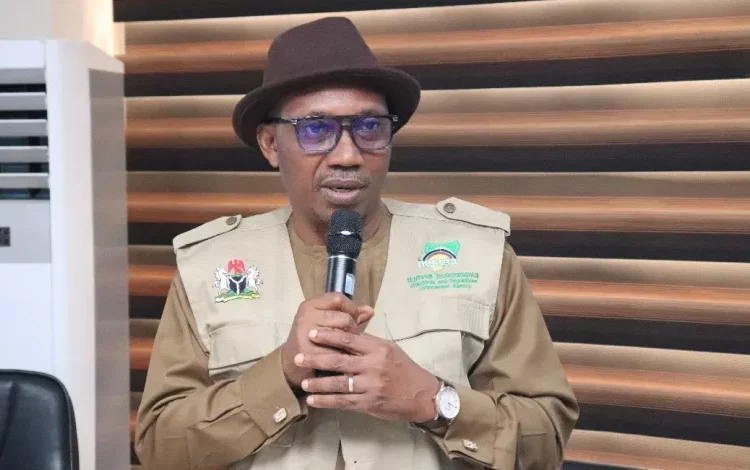Out of thousands of potential stakeholders in Nigeria’s battery manufacturing and recycling sector, only 128 companies have complied with the recently launched National Environmental Battery Control Regulations.
This is a stark contrast to the scope of the Extended Producer Responsibility (EPR) programme, which aims to engage thousands of battery manufacturers, importers, retailers, and recyclers across the country’s 37 states, including Abuja.
Findings by LEADERSHIP showed that the regulations carry significant penalties for non-compliance. Body corporates face fines of no less than N2 million upon conviction, with an additional N50,000 penalty for each day the offence persists. For individual offenders, the fines are N200,000 and N5,000 per day of non-compliance, with some cases carrying imprisonment of up to six months or both fines and imprisonment. Where no penalty is specifically stipulated in the regulations, body corporates face fines of N1 million and an additional N50,000 per day, while individuals are subject to fines of N100,000 and N5,000 per day.
The director general, National Environmental Standards and Regulations Enforcement Agency (NESREA), Dr. Innocent Barikor, at the Regulatory Dialogue on the National Environmental (Battery Control) Regulations, organised by NESREA, in collaboration with the German Corporation for International Cooperation (GIZ Nigeria), on Wednesday, in Lagos, said the dialogue is a crucial step towards ensuring the effective implementation of the Regulations to address the environmental and health challenges posed by the improper management of used batteries in Nigeria.
Barikor, who was represented by the director, South West Zone, Elijah Udofia, added that “The dialogue underscored the urgent need to implement and enforce the recently launched National Environmental (Battery Control) Regulations. This legal framework provides comprehensive guidelines for managing batteries throughout their life cycle, aiming to minimise pollution and promote sustainable waste practices. Today’s dialogue is about moving from policy to practice. I therefore call for collaboration among federal, state, and local governments, as well as private sector stakeholders, to ensure the regulations achieve their intended impact.”
The framework also criminalises non-compliance with the EPR programme, which mandates producers, importers, and distributors to manage their products’ environmental impact from design to disposal. NESREA has registered the Alliance for Responsible Battery Recycling (ARBR) as the sector’s Producer Responsibility Organization (PRO), calling for industry-wide cooperation to foster a circular economy.
The executive secretary of ARBR, Miranda Amachree, expressed concern over the low number of registered members, revealing that only 128 companies have complied with the Regulations. She described the figure as alarmingly low given the scale of the industry across 37 states, including Abuja.
She stated that producers and importers of battery are required to take responsibility for the take-back and proper disposal of waste batteries, unfortunately, membership of ARBR is still very low, and the majority of stakeholders are struggling to meet regulatory requirements.
The ARBR has been coordinating efforts with government agencies, including NESREA, customs, and the Standards Organisation of Nigeria, to enforce compliance. However, Mrs. Amachree stressed the urgent need for stricter monitoring and penalties for defaulters, particularly “free riders” who evade their responsibilities. She also highlighted challenges with feedstock availability for recycling facilities and the lack of follow-through by renewable energy operators, despite their reliance on battery-backed equipment, while calling for strengthened partnerships with development agencies, NGOs, and regulatory bodies to ensure the sustainability of Nigeria’s battery recycling framework.
Head of component, enabling environment for RE/EE Investments, GIZ, Joshua Yari Garba, underscored the importance of environmentally friendly waste management, including the proper handling of batteries, while assuring that his organisation will continue to support the Nigerian government in ensuring proper waste management. “We are not afraid to keep supporting the Federal Ministry of Environment, Nigerian Customs, and all states, especially in terms of environmental management,” he said.
Meanwhile, state-level officials have echoed the urgency for implementation of Battery Recycling Laws. For instance, Anambra state’s commissioner for Environment, Engr. Dr. Felix Odimegwu, lamented the absence of functional recycling plants in his state and criticised unhealthy practices at collection hubs, while assuring that the state is committed to adopting sustainable regulations to ensure safe battery handling and disposal. Similarly, Abia state’s director of Pollution Control and Environmental Health, Agharanya Godson, underscored the dialogue’s significance for addressing waste management challenges. “Abia state is ready to embrace policies that ensure a cleaner and greener future,” he said.





